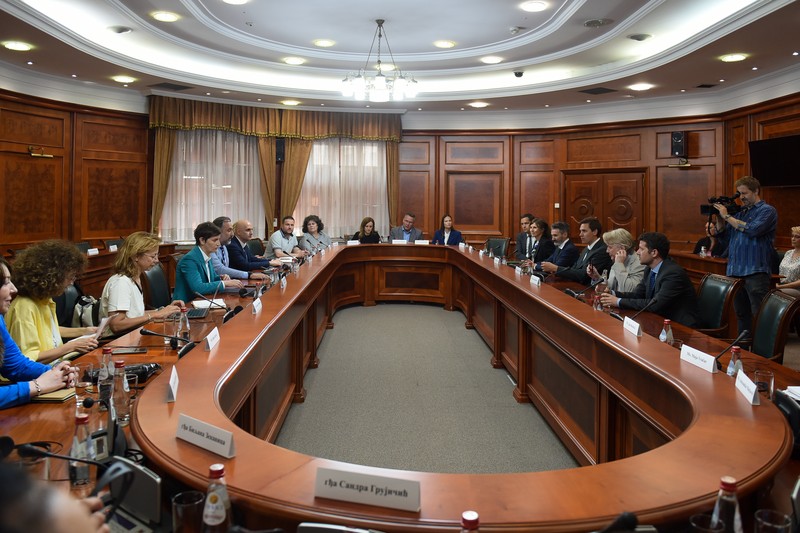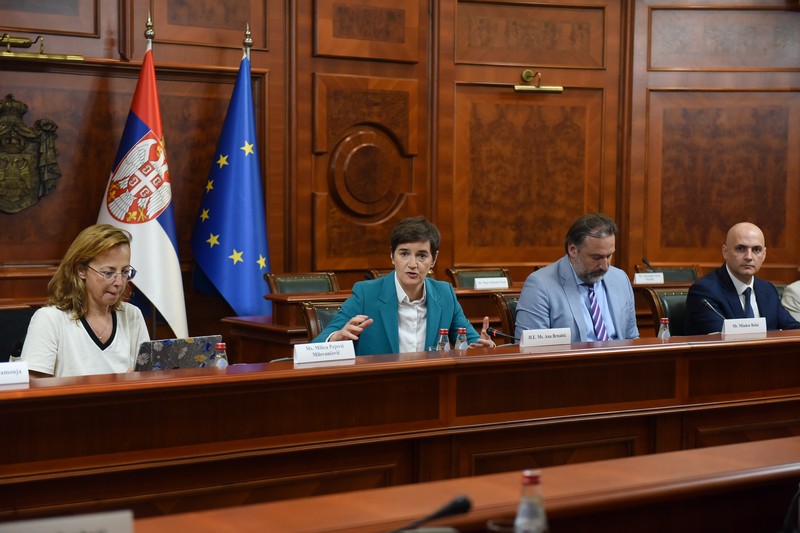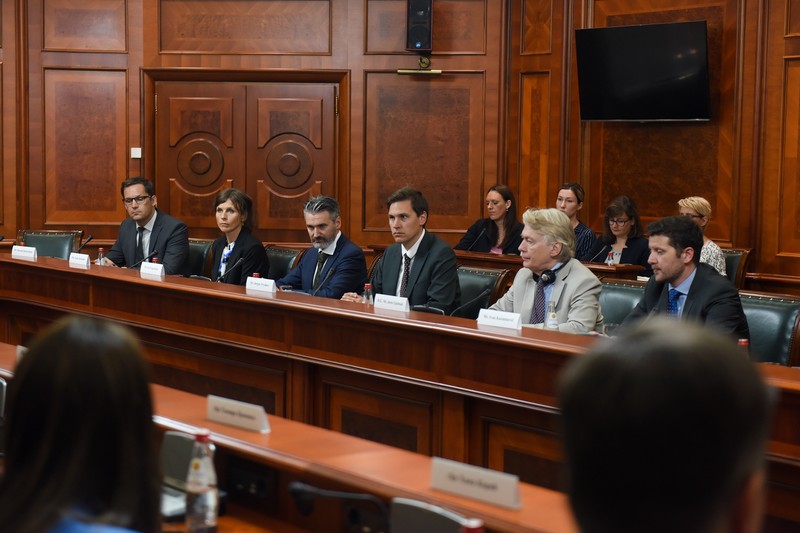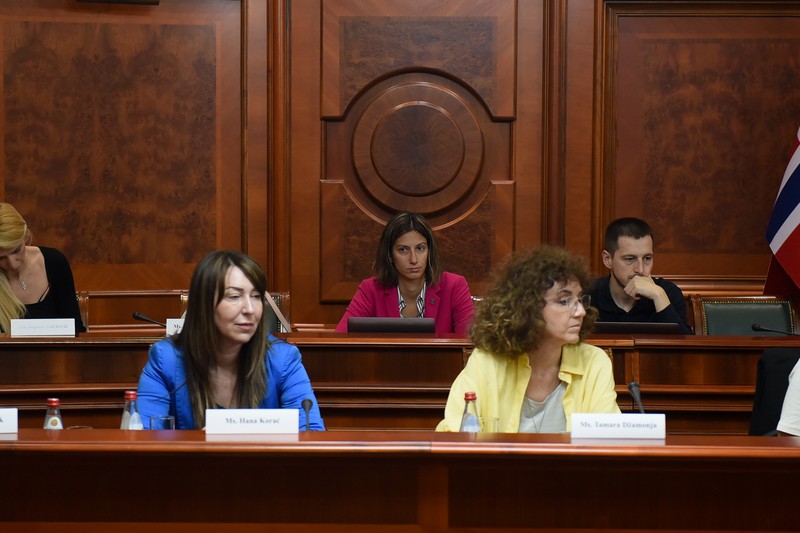Prime Minister Ana Brnabic presided today over the session of the Working Group for Support to Youth Mental Health and Safety.
- Serbia
Get to know Serbia
- Citizens
Culture and science
Health services
Pension and disability insurance
- Business
Employment
Economy
- Media
- Government
- Contact
Keep in touch
Keepin touch
Whether you have a question, comment, suggestion or any problem in the purview of the government, send us your message and we will try to respond as soon as possible. If your problem is not in our purview, we will forward your message to the relevant institution.
Cooperation with experts from Norway on overcoming consequences of massacres
The session was also attended by a delegation of the Kingdom of Norway, which has been on a visit to Serbia since yesterday.
The Prime Minister expressed her gratitude to the Norwegian experts for their willingness to help, as well as to our experts, who took on a huge burden, since the very beginning of May and the tragedies in the Vladislav Ribnikar elementary school and the villages of Dubona and Malo Orasje.
Milica Milovancevic Pejcic, Vice President of the Working Group and Director of the Institute for Mental Health, informed the guests from Norway that the initiative for crisis psychosocial support for the community has been launched recently, which includes helping survivors and their families.
The Vice President of the Working Group said that psychosocial support services for children, teachers and parents in the territory of Belgrade and Smederevo are implemented in a total of 13 elementary schools, and four experts are engaged in the Vladislav Ribnikar elementary school on a daily basis.
She added that there are currently 57 assistants in the database, adding that a supervisory team, which is made up of the most experienced experts from Serbia, is training them.
In addition, there is an independent team of supervisors and two experts who monitor the work of supervisors, because the doctors concluded that due to the delicacy of the matter, it is extremely important to have a triple level of control.
The Working Group will continue intensive work on the ground with colleagues from Norway in the coming period, given that their experience says that one year after the massacre is the period in which it is most important to make an effort, so that the survivors can cope with all the consequences.
-
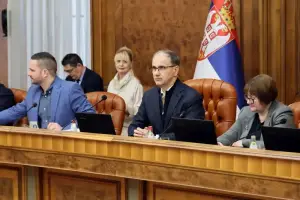 Belgrade, 6 February 2026
Belgrade, 6 February 2026Electricity bills to be reduced for citizens who were without power in January
-
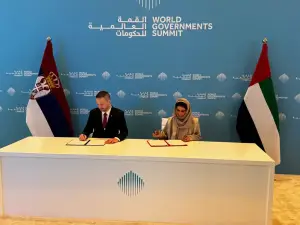 Belgrade/Dubai, 4 February 2026
Belgrade/Dubai, 4 February 2026Agreement on exchange of experiences, modernisation of work of governments of Serbia, UAE signed
-
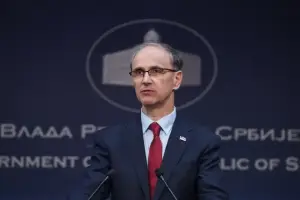 Belgrade, 30 January 2026
Belgrade, 30 January 2026Blockade of border crossings lifted following agreement with hauliers
-
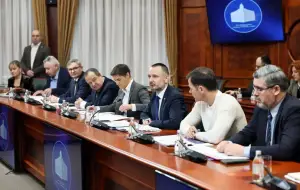 Belgrade, 30 January 2026
Belgrade, 30 January 2026Strengthening capacities, accelerating process of Serbia's accession to EU
-
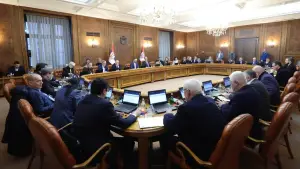 Belgrade, 29 January 2026
Belgrade, 29 January 2026Nomination of Serbia’s natural assets for inscription on World Heritage List
-
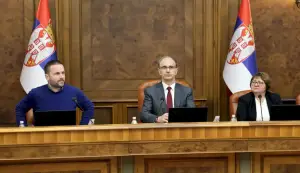 Belgrade, 26 January 2026
Belgrade, 26 January 2026Members of Serbian water polo team awarded €20,000 each
-
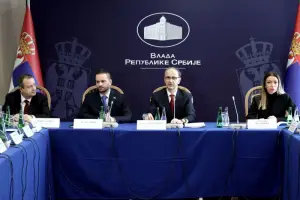 Tara, 24 January 2026
Tara, 24 January 2026Government adopts Bill amending Law on fees for use of public goods
-
 Belgrade, 22 January 2026
Belgrade, 22 January 2026Amount of special fee to incentivise privileged electricity producers remains unchanged
-
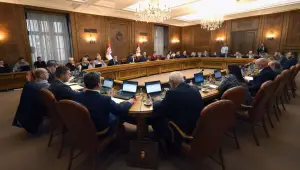 Belgrade, 16 January 2026
Belgrade, 16 January 2026Measures to mitigate consequences of severe winter weather, power grid failures
-
 Belgrade, 12 January 2026
Belgrade, 12 January 2026Non-reimbursable delivery of food products to Ivanjica, Mačva Administrative District

